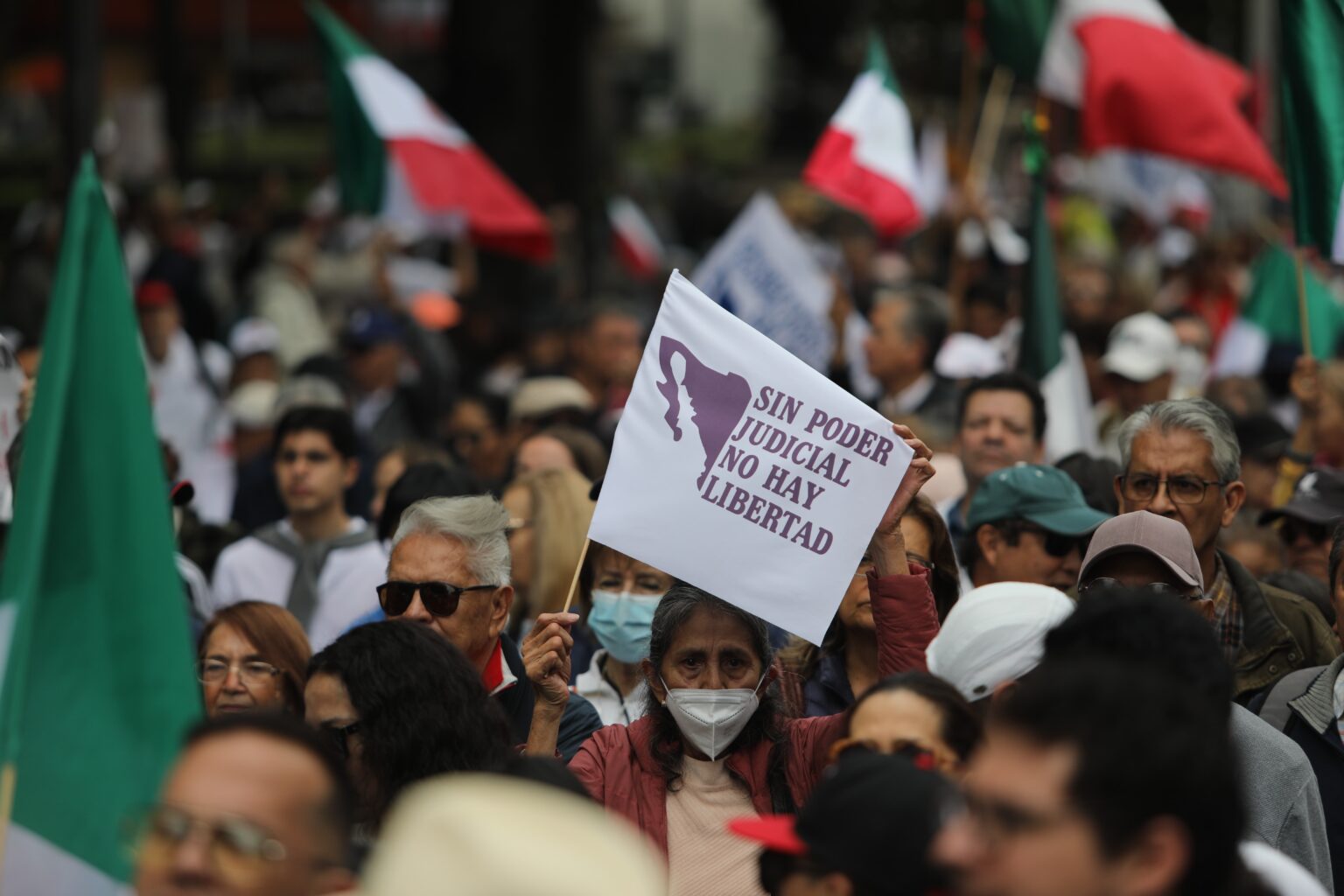For the first time in its modern history, Mexico is preparing to elect judges through a popular vote. Scheduled for June 1, 2025, this unprecedented reform will allow citizens to choose candidates for 881 judicial positions, including seats on the Supreme Court, federal circuit tribunals, and district courts. This shift stems from a constitutional amendment spearheaded by former President Andrés Manuel López Obrador, who claimed that opening the judiciary to electoral scrutiny would help combat corruption and restore public trust in the legal system.
Over 2,600 candidates have registered for the elections. To qualify, each applicant needed a law degree, at least five years of legal experience, and recommendations from civil society or legal institutions. Yet the sheer size and diversity of the candidate pool has raised questions about how voters will evaluate qualifications in a race dominated by short campaigning windows and limited public knowledge of judicial processes.
Among the high-profile candidates is Delia Quiroa, a human rights activist who entered the race following the unsolved disappearance of her brother. She sees judicial reform as a path toward justice for victims. Arístides Rodrigo Guerrero, a law professor known for his dynamic social media outreach, is also in the running, along with Silvia Delgado García, a seasoned criminal defense attorney with a controversial clientele, and Mauricio Tapia Maltos, a young Supreme Court staffer pushing for generational change.
The electoral format will allow each voter to select candidates for multiple levels of court, turning the judiciary into a directly accountable institution for the first time. However, this democratization of the legal system has not come without significant concern.
Reform Faces Domestic Backlash And Global Scrutiny
While the reform’s goal is transparency, it has sparked backlash across legal, academic, and diplomatic circles. Critics warn that subjecting judges to electoral pressure could erode the impartiality essential to judicial roles. Detractors argue that a judiciary beholden to public opinion—and campaign funders—might deliver rulings based on popularity rather than constitutional merit.
The United States Ambassador to Mexico voiced deep concerns, describing the reform as a “democratic risk” that could harm judicial independence and potentially destabilize the longstanding economic relationship between the U.S. and Mexico. The comment followed a wave of diplomatic anxiety as neighboring countries and international legal organizations questioned whether the reforms were a step forward—or a dangerous precedent.
Within Mexico, the response has been just as intense. Thousands of legal professionals, civil society organizations, and students have taken to the streets to protest. Strikes in the judiciary have slowed court operations in several regions. Demonstrators argue that weakening the system’s checks and balances opens the door to criminal infiltration and political manipulation. One law professor at Mexico’s National Autonomous University called it “the most significant rollback of judicial independence in a century.”
The crisis reached new heights when eight sitting Supreme Court justices submitted their resignations rather than participate in the election. Their joint statement expressed concerns over the integrity of the reform, suggesting it undermines the separation of powers guaranteed under the Mexican Constitution. While López Obrador’s government framed these resignations as a refusal to embrace change, others saw them as a principled stand in defense of legal institutions.
Political Strategy And The Road Ahead
The judicial reform was one of the final and most ambitious initiatives of López Obrador’s administration. It was rapidly passed by Congress in the last months of his term, thanks to the Morena party’s supermajority. His successor, President Claudia Sheinbaum, has pledged to uphold and implement the reform, aligning herself closely with her predecessor’s populist vision. Sheinbaum claims the change will dismantle elitism in the legal system and empower ordinary citizens to hold judges accountable.
However, many legal analysts view the reform as a political maneuver. With the presidency, Congress, and now potentially the judiciary under Morena’s control, the opposition fears that democratic guardrails are being dismantled. Critics emphasize that with fewer checks, ruling parties could manipulate court rulings to serve partisan interests, further concentrating power within a single political bloc.
Additional concerns have emerged over candidate vetting. Although minimum professional criteria exist, there is no standardized test of legal knowledge or assessment of judicial ethics. This raises fears that some contenders, while meeting basic requirements, may lack the impartiality or experience necessary for high judicial office. There are also allegations of potential ties between certain candidates and regional criminal groups, prompting warnings from watchdogs about the danger of cartel influence in court rulings.
As the campaign period intensifies, millions of Mexican citizens are being asked to navigate a system that is entirely new to them. Educational campaigns have been launched to explain how judicial voting will work, but voter confusion remains high. Polls show that while many support judicial accountability, a majority remain unsure about how to assess candidate competence.
The upcoming vote marks a turning point for Mexico. Whether it strengthens democracy or destabilizes it will depend not only on the results, but also on how the new judicial structure functions in practice. Either way, the 2025 judicial elections promise to leave a lasting imprint on the country’s institutional fabric.


